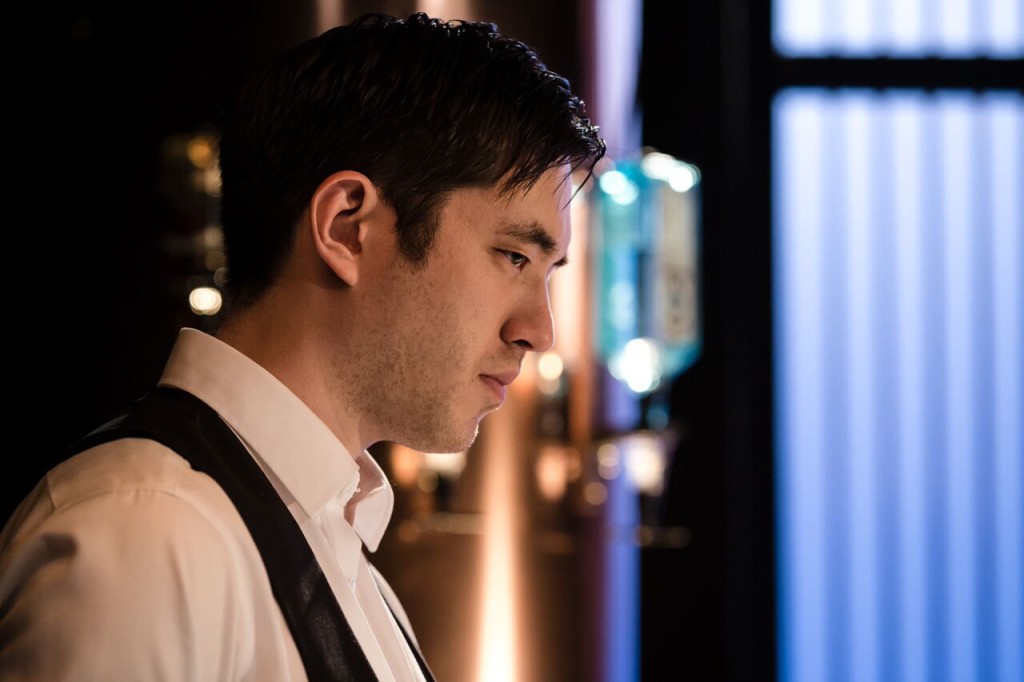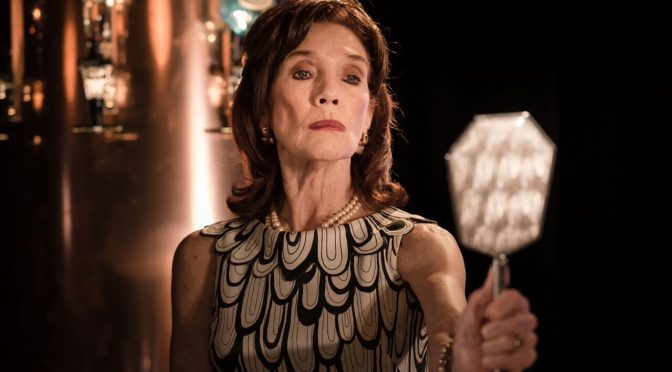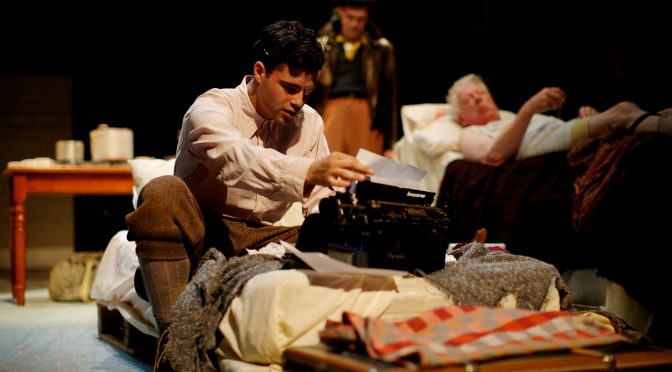With the benefit of director Robert Chevara’s intelligent handling, here’s an unmissable opportunity to see a rarely performed late work by Tennessee Williams. This startlingly innovative play, which ruthlessly examines a broken marriage, shows Williams’ unique and challenging voice in a new light.
Mark is a successful artist who believes he has made a breakthrough with his painting, with a new style that has clear parallels with Williams’ writing. According to his sexually ferocious wife Miriam, he has simply gone mad. Aggressive advances toward a barman fill Miriam’s time as she waits for Mark’s agent to arrive and take him away – she’s had enough of him and his art.

These are tough roles that Chevara supervises carefully. David Whitworth is entirely credible as the (literally) unstable, dying artist. Andrew Koji and Alan Turkington, playing the barman and gallerist, appreciate the piece’s humour perfectly. Linda Marlowe has the star role, delivering a mesmerising performance that establishes Miriam as another leading lady in the Williams canon.
In this hugely difficult text, few lines of dialogue are completed – a treatment that toys with naturalism while being extremely stylised – so it’s forgivable that the delivery isn’t quite perfect. And yet the stilted language has a distinct and demanding beauty. Key words are isolated and repeated for weight, creating a rhythm to the piece that carries into Miriam’s witty insults, desperation and, finally, transcendental ideas.
Inspired by Japanese poetry, the sensibility is still Williams, making a fusion of East and West that’s often disorientating and exquisitely reflected in the production’s video projections. There are times this play feels like an out-of-body experience – characters describe actions we can clearly observe – compounded by suggestions that Mark and Miriam are really two sides of the same character (get your head around that one). A weird and wonderful play that stands alone and proud.
Until 14 May 2016
Photos by Scott Rylander


